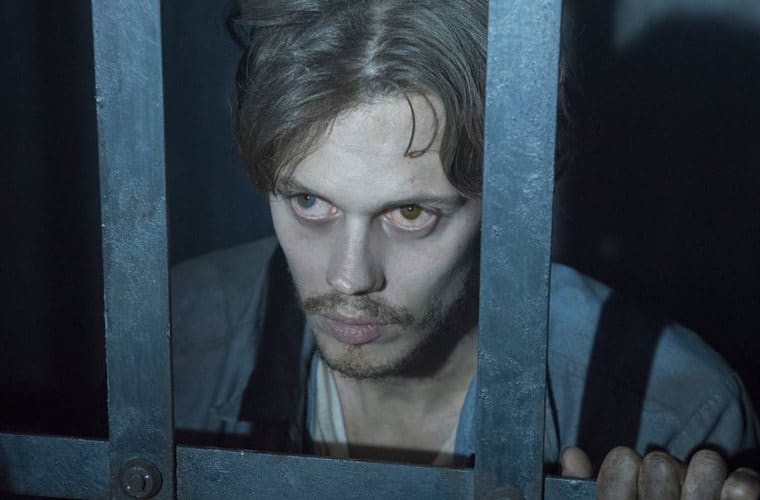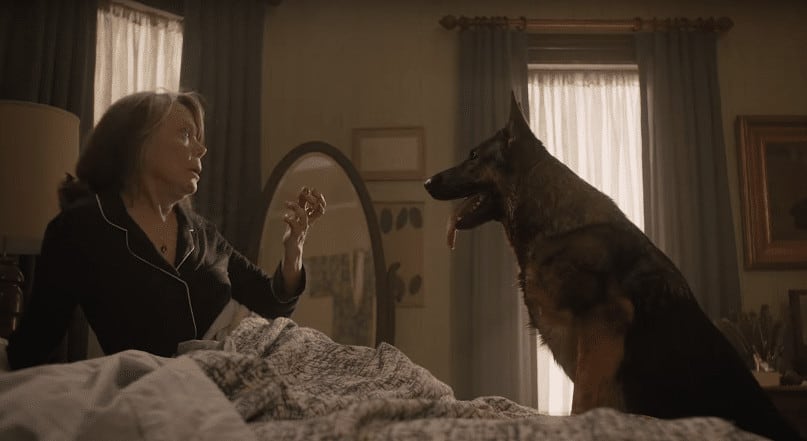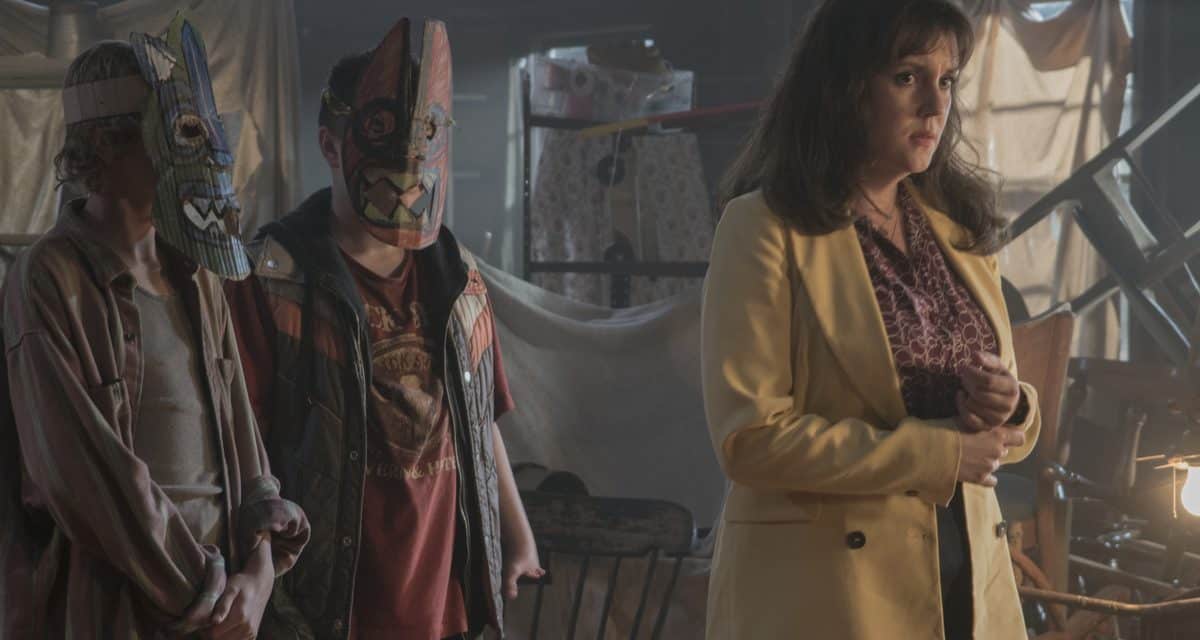
I love the works of Stephen King. I’ve planned a Loser’s Club-inspired tattoo, set a countdown to Castle Rock on my phone, and am steadily making my way through the series of well-loved ‘80s paperbacks that I spent most of my childhood admiring on my mom’s bookshelf. So when King himself tweeted recently about Castle Rock, saying, “CASTLE ROCK is really good, each episode better than the last. But put all that Easter egg stuff aside and just enjoy it on its own terms,” my first thought was, “Whatever you say, oh King of Horror!” My second thought was “Maybe not” and my third thought, which I landed on and have stuck within the weeks since that tweet: “Okay, but how?”
The fact of the matter is that I’d enjoy Castle Rock more if I could take King’s advice, and I doubt I’m the only one. The show, which has aired five episodes of its first season, has so far been well-made and intriguing, but my and other fans’ (not to mention potentially the showrunners’) desire to connect each plot thread and character to prior volumes of the King canon has largely overwhelmed the story’s originality. The dark mystery set in one of King’s most-frequented pieces of Maine real estate borders on dropping too many Easter eggs to let non-King fans feel like they’re totally in on the game, yet (so far) contains too few substantial connections to what I’ll henceforth call the Stephen King Extended Universe (SKEU) to keep a King superfan like me from feeling completely satisfied. This perspective, however, may turn out to have more to do with fan culture than with the show itself.
So far, Castle Rock seems to take place in a post-King-book world, where townsfolk wade through all of the isolation, ennui, and ill-defined dread that naturally comes with living in what was once–and still could be–the hub of all things evil and uncanny. Suffering from what seems like collective PTSD, the citizens of Castle Rock are all looking for some kind of sign–just like eagle-eyed viewers. They’re also, in the case of Andre Holland’s former-missing-kid hero Henry Deaver, Sissy Spacek’s dementia-stricken Ruth, and Bill Skarsgard’s enigmatic prisoner, amnesiac: dislocated from their rightful place in their own stories, confused about who they are and once were.

This sense of displacement–along with other unexplained references, like Pangborn’s recent “27 years” remark to The Kid–makes it almost impossible for King fans to watch the show without waiting for some a-ha moment during which the series crosses over from an original story with some nice homage work to an outright adaptation or continuation of one of his great works. This pervasive lack of narrative clarity also reflects the viewing experience of fans, who aren’t able to clearly place actors, characters, and settings that are familiar from elsewhere in the SKEU within this new, shadowy context.
But, like King said, it’s worth trying to relax into the series. The casting and acting are exceptional, creators Sam Shaw and Dustin Thomason seem deliberate and thoughtful, and King’s right that each episode is better than the last. Despite the long list of practical reasons for fans to calm down and just take what we’re given, our collective obsession with Easter eggs isn’t likely to end soon. The large majority of the show’s online coverage so far centers on keeping track of its references, and the show’s book-page-collage opening credits heavily tease its potential to intersect with King’s bibliography.

The tricky issue of Easter eggs is much larger than the SKEU alone. Marvel, DC, Star Wars, and basically any other major franchise out there has fallen prey to fans’ habit of trading in niche references like currency, often to the purposeful exclusion of casual viewers. This type of gatekeeping keeps would-be fans at arm’s length by creating false tiers of “true” fandom and viewing everything in terms of its relationship with the proverbial bandwagon. While early promos for Castle Rock leaned into insider-y King associations, the show itself has the potential to tie together several strands of fandom, including new and old King fans and curious viewers of genre shows or prestige TV. I think King’s right to warn us against obsessing: I don’t want to see this high-horse exclusion happen to the horror stories generations of King fans love so much, and I don’t want to participate in it by viewing the Easter eggs in Castle Rock as anything more than an unexpected but exciting treat.
Stephen King’s work has always been egalitarian. He writes stories that are both epic and personal, but always accessible to anyone with a library card or a few bucks to spend on a mass market paperback. Is Castle Rock the same way? It remains to be seen, but since the distinction is as much a fan-made one as anything else, we can work to keep it that way by trying our best to sit back and enjoy the scary, mysterious ride.
Related Topics: Castle Rock, Fandom, Horror, Stephen King

